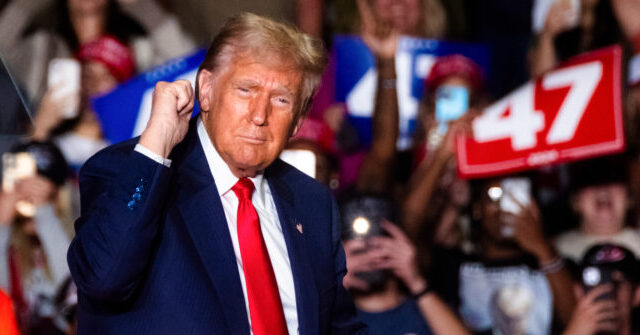In the latest developments surrounding U.S. trade policy, Vice President Kamala Harris has faced significant backlash from American voters regarding her stance on tariffs. During a CNN town hall, she characterized former President Donald Trump’s tariff proposals as a “national sales tax of at least 20 percent on everyday goods and necessities,” a statement that many critics argue is misleading. Harris refrained from directly using the term “tariff,” which some observers interpret as an indication of her discomfort with the concept. Instead, her rhetoric seemed to frame tariffs negatively, suggesting they would cause financial strain on American families, potentially undermining support for such measures.
However, public sentiment appears to be showing strong support for Trump’s approach to tariffs. According to the CNBC All-America Economic Survey, a notable 54 percent of Americans expressed trust in Trump over Harris when it comes to handling tariffs on imports. This is a striking divergence from Harris’s position and reflects a broader trend of voters aligning with the notion that tariffs can be beneficial. The poll results indicate a growing recognition among voters that tariffs could serve as a protective measure for domestic industries, overriding concerns about potential cost increases associated with such policies.
Further reinforcing this perspective, a Reuters/Ipsos poll conducted last month reported that 56 percent of voters supported Trump’s proposed tariffs. This finding draws attention to a significant block of the electorate that views tariffs as a tool for enhancing American jobs and competitiveness against foreign imports. In a similar vein, an ABC News/Ipsos poll published last week revealed that 57 percent of voters backed the idea of raising tariffs, a sentiment echoed by 19 percent who strongly endorse it. This level of support suggests that Harris’s attempts to undermine tariff policies may not resonate with the majority of voters.
The disparity between Harris’s claims and public opinion raises important questions about the Democratic Party’s approach to trade and economic policy. While Harris positions herself as a champion for American families, her critics argue that her messaging lacks alignment with the practical concerns of those families. Furthermore, the political implications of this divide could be significant, as voters might lean toward candidates who advocate for protective measures like tariffs, particularly in battleground states where manufacturing jobs are crucial to the economy.
As Harris navigates the complex landscape of trade policy, it becomes clear that her current strategy may risk alienating a segment of the electorate that sees tariffs as an essential component of a robust American economy. The potential ramifications of this disconnect could impact not only her political future but also broader Democratic initiatives around economic recovery and job growth. There is a palpable tension between traditional Democratic views on free trade and the rising populist sentiments that favor protective economic policies.
Looking ahead, both parties must grapple with the implications of these polling trends as they develop their platforms for upcoming elections. For the Democrats, recalibrating their stance on tariffs and economic policy could prove essential in resonating with a larger voter base. As trade issues continue to dominate political discourse, the outcome of this debate may ultimately shape the direction of U.S. economic policy and the fortunes of candidates in the forthcoming electoral cycle. The present alignment of public opinion suggests that embracing tariffs could offer a strategic advantage for those seeking to connect with voters in an increasingly polarized political landscape.

